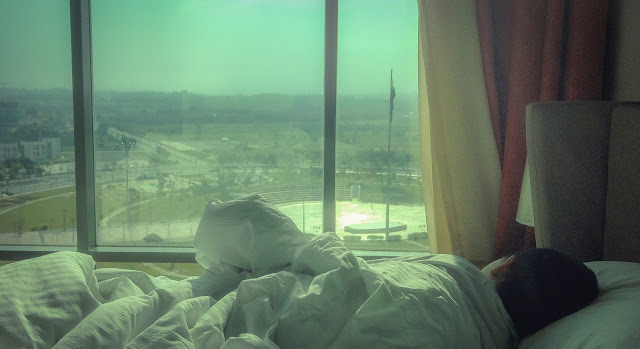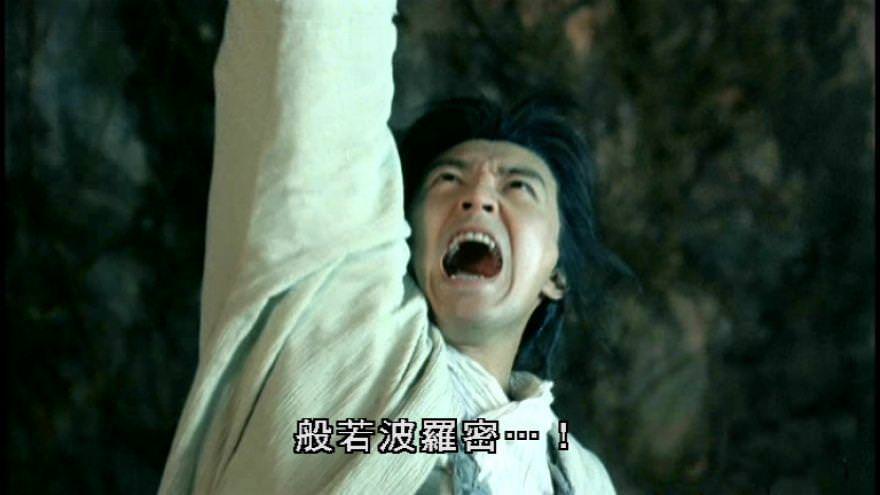J. G. Davidson's appointment (1875)
No. 336
Colonial Secretary's Office1, Singapore, 20 January 1875
I am directed to inform you that the Governor has been pleased to appoint you, subject to the confirmation by the Secretary of State2, to be Her Majesty's Resident to the Sultan of Salangor, and to communicate to you the following instructions for your guidance in the duties of that office.
His Excellency desires that you will proceed at once to Klang, where you will establish yourself at first, making such arrangements for your personal accommodation as the nature of the case will admit of, and proceeding as soon as possible to organize a Resident Guard and Police of such force as you may think proper under the circumstances, applying to the Inspector General of Police for a few men from Singapore or Malacca in the first instance as a commencement.
His Excellency desires that you will at once publish notices far and wide, not only in Salangor, Klang, Langat, Lookoot, Lingie, and other places in Salangor, but also in Perak, Malacca, Singapore, and Penang, recalling all fugitives, promising them protection, and taking special steps for having such of them as possessed property restored to the possession of their property, and providing all of them with waste land to cultivate if they wish to cultivate.


His Excellency attaches much importance4 to success in inducing these people to return to Selangor and trusts that you will give your best attention to the matter.
You are requested to make a report at your earliest convenience on the general subject of the revenue system which you think should be adopted.
His Excellency is of opinion that waste lands should be freely granted to bona fide intending cultivators on terms free of state tax for 3 years, and after 3 years to be liable to 5% on estimated produce on lands cleared and cultivated subject to be commuted to a yearly money payment, but large grants of land should be sparingly given without guarantee of intended cultivation or of large sums being spent in the erection of machinery or that they should be given liable to a small tax of so much an acre, if not cultivated within a reasonable time, and kept in a state of cultivation.
The lands will be liable however to taxation for road making to be managed by the occupiers, and also for expenses required at any time for an extra Police Force made necessary in any District by crimes of violence.
One of the first of these roads should, His Excellency thinks, be made or rather improved, from the landing place at Klang to the mines, a distance it is said of 16 miles.
The system of collecting revenue on imports, such as opium, tobacco, rice, etc., and on exports, mineral and vegetable should occupy your early attention, and His Excellency will be prepared to receive a report from you on this important matter, so as to have the system settled as soon as possible.
Tuanku Dia Oodin's debts should however be enquired into at once, and a well authenticated statement of his affairs submitted for settlement, by a sinking fund calculated at the rate of 6% on all bona fide debts due by him, incurred for the benefit of the country, and from your previous knowledge of the Tuanku's affairs, His Excellency doubts not that you will be able to send in a statement and scheme for settlement at an early date.
As is usual in such cases you will keep a careful diary of all your proceedings, a copy of which should be sent to this office by every regular opportunity from Klang, and you will send in a regular monthly report of progress, and a monthly statement of account showing the revenue and expenses of the country, which you will take under your special charge, being assisted by such officers, clerks, etc. as may be sanctioned by His Excellency on your representation after arrival at Klang.
A steam launch will be provided for you at once, to enable you to visit the several places of trade and population in Salangor, and His Excellency desires that you will take an early opportunity of seeing the Sultan of Salangor at Langat, and that you will enter into such relations with His Highness as will enable you, in gaining his confidence, to be of real service in securing the progress and prosperity of his country
Mr. Swettenham, the Assistant Resident at Langat, has been instructed to correspond direct with office for the present, sending copies of his letters to your for your information.
Col. Sec. S.S.
- James Guthrie Davidson (b. 1837, d. 1891) was a Singapore lawyer and the founder of the Malayan Tin Mining Company. This letter (1957/0000002W, SEL/SEC. 3/75) was written by Thomas Braddell (b. 1823, d. 1891), and directed to Davidson, informing him that he was appointed as the first Resident of Selangor by Sir Andrew Clarke (b. 1824, d. 1902). This letter can also be found in Sadka (1968). See Appendix 3, p. 392.
Braddell was the replacement for Birch was the latter was transferred to Perak. Note that the name of the office is marked as ‘Colonial Secretary's Office' and not ‘Office of Secretary for Native States' (e.g. 1957/0000003W, in a letter dated 2 February 1875). Historian, R. J. Braddell (b. 1880, d. 1966) was a grandson of Thomas Braddell.
Davidson was in Selangor in the first week of Feburary of 1875. His friend, J. W. W. Birch was already in Perak since the first week of November of 1874. Captain W. J. J. Tatham was stationed in Sungei Ujong in November 1874, but unfortunately he died and was replaced by P. J. Murray in April 1875.

The Chinese seal of the British Resident of Selangor reads: 大英國駐紮色壠哦叅議臣印 Salangore Resident 1874 (e.g. 1957/0004273W). The seal was likely fabricated in 1874 and Clarke's plan was to simultaneously appoint both Davidson and Birch as British Residents in the same year after they concluded their trip to the Malay States.
The original deployment was announced on 14 December 1874 by Braddell and the list did not include Davidson (see Parkinson (1960), p. 184).
1. J. W. W. Birch
(Resident - Bandar Bahru)
2. Captain T. C. S. Speedy
(Assistant Resident - Larut)
3. F. A. Swettenham
(Resident - Pangkalan Batu)
4. Captain W. T. Tatham
(Assistant Resident - Sungei Ujong)
The name of Swettenham was removed last minute and his role was downgraded to Assistant Resident, likely because protests raised at the Colonial office in Singapore. The following note was hastily dispatched to Carnarvon on 30 December 1875:
. . . Mr. J. G. Davidson to be Her Majesty's Resident at Salangore, with the Viceroy of that State, Tunku Dia Oodin, at a salary of 1,500£ a year. Mr. F. A. Swettenham of Straits Civil Service, to be Her Majesty's Assistant Resident with the Sultan of Salangore, with a salary of 750£ a year . . .
Thus the following configuration was formed:
1. J. W. W. Birch
(Resident - Bandar Bahru)
2. Captain T. C. S. Speedy
(Assistant Resident - Larut)
3. J. G. Davidson
(Resident - Pangkalan Batu)
4. F. A. Swettenham
(Assistant Resident - Langat)
5. Captain W. T. Tatham
(Assistant Resident - Sungei Ujong)
J. W. W. Birch's salary was revised from 1740£ (when he was the Colonial Secretary at Singapore) to 2000£ (Perak Resident). Note that the salary of the Resident Perak is higher than that of Selangor, likely because of the tin production volume in Larut. After Birch was neutralized by Seputum, Swettenham was transferred to Bandar Bahru and Bloomfield Douglas was transferred from Singapore to Klang.
1. F. A. Swettenham
(Assistant Resident - Bandar Bahru)
2. Captain T. C. S. Speedy
(Assistant Resident - Larut)
3. J. G. Davidson
(Resident - Pangkalan Batu)
4. W. B. Douglas
(Assistant Resident - Langat)
5. Captain W. T. Tatham
(Assistant Resident - Sungei Ujong)
- Henry H. M. Herbert (b. 1831, d. 1890), 4th Earl of Carnarvon was the Secretary of State for the Colonies from 1858 to 1859. And later Colonial Secretary in 1866-1867 and 1874-1878. He reportedly opposed the policies of Sir William Jervois and J. W. W. Birch in the Malay States. See Isabella Bird, Kay Chubbuck (ed.) (2002) Letters to Henrietta, Northeastern University Press, Boston, p. 319.
Carnarvon was aware of a potential conflict of interest involving Davidson, given his financial ties to the tin production business in Selangor. Although Carnarvon initially raised this objection, he did not pursue the matter further after receiving repeated justification from William Jervois (who succeeded Clarke in May 1875).
- Literarally, sun hat. Topī is a Hindi word and it is also borrowed by the Malays (توڤي). Many authors like to use these photographs when they write about the history of the Malay states, unfortunately incorrect interpolations and extrapolations are added by these authors. For example, Abdur-Razzaq Lubis (2018), but he mistook the seated man in the second photo as Captain Yap (see p. 387). In the history textbook (歴史・第二冊, 2019, p. 122) used by Chinese independent high schools, we were told that the seated man was a translator to Tunku Kudin. Both Hon Yon Kee 韓佑祺 (2021) and Liew Kam Ba 劉崇漢 (2023) repeated this mistake in their books (Chinese pioneers in Malaya: A photographic record 馬來亞華人先驅拍攝錄, p.42 and A Century of enterprise: The history of the Chinese in Kuala Lumpur (1857 - 1957) 百年建業・吉隆坡華人歴史, p. 55). Actually the name of the seated man was Loi Fat and he was the translator recommended by W. A. Pickering to Birch. It is likely that he was with Birch when his boss was assasinated in November 1875
- Clarke's guidelines to the 39-year-old Davidson on how to handle the defeated side of the Klang War was very clear: Recall them back to Selangor and return their properties to them, keep them safe, keep them protected, keep them busy with agricultural activities by giving them tax-free land for the first three years. Apparently Clarke was of the opinion that if these elements can create disturbances in other Malay states if their energies were not harvested or regulated properly.





Comments